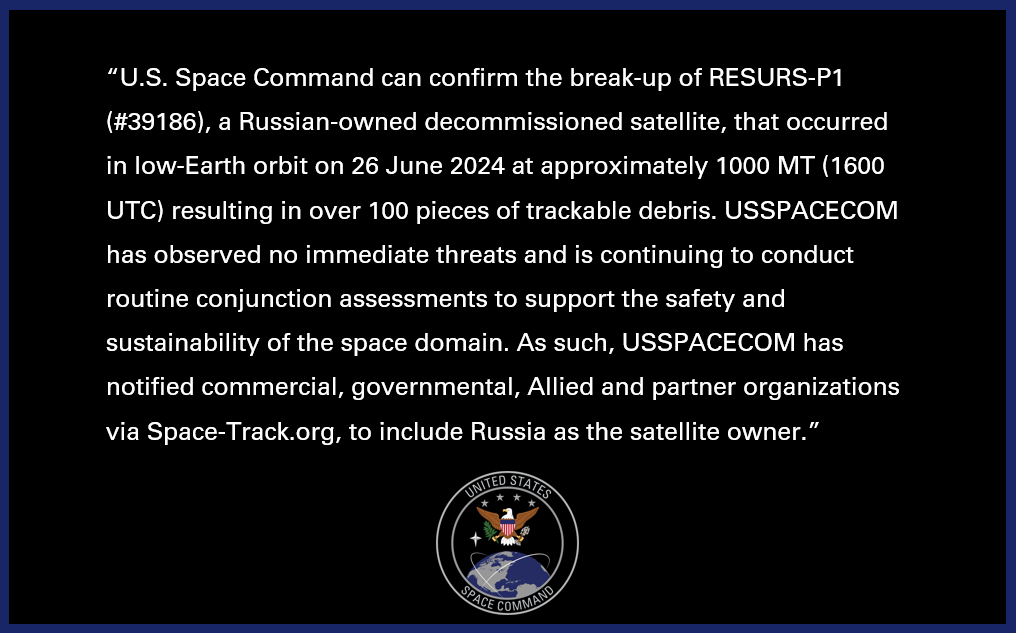The Russian satellite Resurs-P1 has crashed in orbit with the formation of multiple pieces of debris. This was reported by LeoLabs, a company specializing in near-Earth space monitoring.

Resurs-P1 was launched in 2013. The apparatus was intended for remote sensing of the Earth and obtaining images of the Earth’s surface with a resolution of up to 1 meter. Its dimensions were 7.93 by 2.72 meters and its mass was 6.5 tons. The satellite malfunctioned in December 2021, after which the height of its orbit gradually decreased, greatly facilitated by the increase in solar activity.
On June 26, Resurs-P1 broke up with the formation of more than a hundred pieces of debris. Leolabs was the first to report it, and later this information was confirmed by the U.S. Space Command. It has already informed its allies about the incident.

At the time of the destruction, the apparatus was in polar orbit at an altitude of 355 km. It is currently unknown what exactly caused the incident. But more often such events are caused by exploding batteries.
At the same time, astrophysicist Jonathan McDowell, known for his work on tracking objects in Earth orbit, noted that at the time of the destruction of Resurs-P1, it was flying near the military cosmodrome Plesetsk. This means that the satellite could have been destroyed by another Russian anti-satellite weapon test. At the same time, McDowell said he had no information so far about airspace closures in the region, which usually precede missile launches.
The Resurs P-1 debris event now reported to have 100+ pieces. Still most likely an internal event; however, ground track does pass near Plesetsk during the reported event window. I haven’t seen reports of NOTAMs that would suggest a Nudol’ ASAT launch, but I can’t rule it out pic.twitter.com/ybkY8p7HvC
— Jonathan McDowell (@planet4589) June 27, 2024
According to the U.S. Space Command, so far, the Resurs-P1 debris does not pose a direct threat to other satellites. However, we don’t know how strong the explosion was. If it was powerful enough, some of the debris could move into orbits with a large apogee, greatly increasing the threat they create. Russian officials have not yet commented in any way on the explosion in orbit.


